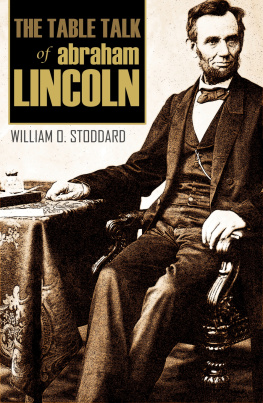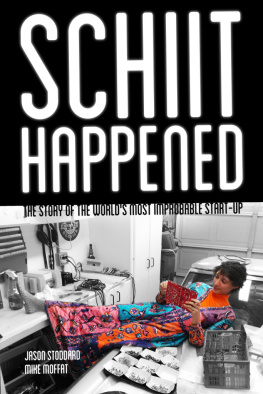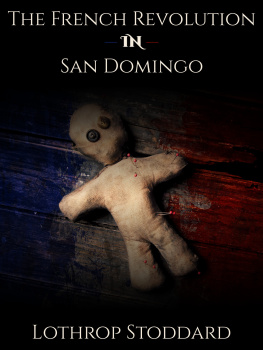John L. Stoddard - Rebuilding A Lost Faith: By an American Agnostic
Here you can read online John L. Stoddard - Rebuilding A Lost Faith: By an American Agnostic full text of the book (entire story) in english for free. Download pdf and epub, get meaning, cover and reviews about this ebook. year: 2015, publisher: TAN Books, genre: Religion. Description of the work, (preface) as well as reviews are available. Best literature library LitArk.com created for fans of good reading and offers a wide selection of genres:
Romance novel
Science fiction
Adventure
Detective
Science
History
Home and family
Prose
Art
Politics
Computer
Non-fiction
Religion
Business
Children
Humor
Choose a favorite category and find really read worthwhile books. Enjoy immersion in the world of imagination, feel the emotions of the characters or learn something new for yourself, make an fascinating discovery.

- Book:Rebuilding A Lost Faith: By an American Agnostic
- Author:
- Publisher:TAN Books
- Genre:
- Year:2015
- Rating:5 / 5
- Favourites:Add to favourites
- Your mark:
- 100
- 1
- 2
- 3
- 4
- 5
Rebuilding A Lost Faith: By an American Agnostic: summary, description and annotation
We offer to read an annotation, description, summary or preface (depends on what the author of the book "Rebuilding A Lost Faith: By an American Agnostic" wrote himself). If you haven't found the necessary information about the book — write in the comments, we will try to find it.
Rebuilding A Lost Faith: By an American Agnostic — read online for free the complete book (whole text) full work
Below is the text of the book, divided by pages. System saving the place of the last page read, allows you to conveniently read the book "Rebuilding A Lost Faith: By an American Agnostic" online for free, without having to search again every time where you left off. Put a bookmark, and you can go to the page where you finished reading at any time.
Font size:
Interval:
Bookmark:
Rebuilding a
Lost Faith
By An American
Agnostic
John L. Stoddard
| Nihil Obstat: | C. Schutt, D.D. | |
Censor Deputatus | ||
| Imprimatur: |  | Edm. Canon Surmont |
| Vicar General | ||
| Westminster | ||
| March 21, 1922 |
Originally published in 1921 by P. J. Kenedy & Sons, New York.
Retypeset and republished in 1990 by TAN Books and Publishers, Inc.
The type in this book is the property of TAN Books and Publishers, Inc., and may not be reproduced, in whole or in part, without written permission of the publisher.
Cover photograph (Basilicas at Lourdes) by Leonard Von Matt.
Library of Congress Catalog Card No.: 90-71103
ISBN: 978-0-89555-410-9
TAN Books
Charlotte, North Carolina
www.TANBooks.com
1990
"Into Thy vineyard I come in haste,
Eleven sounds from its ancient tower,
So many years have gone to waste,
What can I do in a single hour?"
"Too late have I loved Thee,
O Beauty ever ancient, ever new."
St. Augustine
"Thou hast made us for Thyself,
O God, and our hearts
are restless
'till they rest in Thee."
St. Augustine
CONTENTS
PREFACE
T HE world of literature possesses many records of conversion to Catholicism which are more startling in their events, more powerful in their delineation and more pleasing in their language than this story. Yet the experience of every soul is after all unique, and I myself have gained much benefit from reading the accounts of those who have preceded me, as pilgrims to the Port of Peace. This book is the result of numerous requests to write an explanation of the motives, influences and arguments which brought me back to faith in God, the Bible, Immortality and the Christian Religion, and finally led me to enter the ancient, Apostolic, Catholic Church, whose Primate is the Pope. It has seemed best to preface this explanation with a brief account of my youthful religious experience, between which and my present standpoint there stretches, like a desert between two oases, a spiritual wilderness of more than forty years. Both of these widely separated mental states constitute kindred portions of my spiritual entity, the former having been to some extent the origin of the latter.
From a glance at the Table of Contents of this volume one might perhaps conclude that the book is intended to be controversial. It is true that many of the usual differences between Catholics and Protestants are here discussed, but not with a desire for controversy. As I formerly took a more or less public stand towards prominent religious questionsunhappily in opposition to what I now through God's grace recognize as truthI feel myself constrained to state with equal frankness my present religious convictions. As possible readers, I have had in mind especially such Protestants and Rationalists as, like myself, have grown up under modern sceptical and materialistic conditions, with little or no conception of ecclesiastical authority. To them the point of view from which I have approached the study of the Catholic Church will seem familiar and natural, however much they may differ from me in my conclusions. To Catholics who may turn these pages, I would say in advance, lest they be disappointed, that the results arrived at by these arguments will offer to them nothing new. Yet possibly the story of the arduous journey I was forced to make to reach a land already so well known to them may have for them some interest. They will at least appreciate the fact that I was moved to write these pages by a desire to counteract the evil influence which my hostility to Christianity once exerted, and to undo to some extent the harm produced for more than two score years.
God can make use of even the humblest instrument, and He may deign to do so in this instance. In view of this possibility I prayed that His Divine blessing might accompany me as I wrote.
God grant that such has been the case.
THE AUTHOR
Chapter 1
FROM FAITH TO RATIONALISM
Nothing would be done at all, if a man waited till he could do it so well that no one could find fault with it.
JOHN HENRY NEWMAN.
In den Ozean schifft mit tausend Masten der Jngling; Still, auf gerettetem Boot treibt in den Hafen der Greis.SCHILLER.
M Y EARLY training was extremely religious. Both my parents were of old Puritan stock. Their theology was Calvinistic and of the type denominationally known as "Congregational." Their lives were not made gloomy by their creed, though they were certainly serious. Family prayers, morning and evening, were observed by them, followed on Sunday evenings by the singing of some beautiful hymns, whose words and melodies are still dear to me. The musical accompaniment to these was furnished by my father, and those sweet Sabbath evenings, when the family group assembled thus in prayer and praise, remain among the most touching memories of my life.
Dear, old-time tunes of prayer and praise,
Heard first beside my mother's knee,
Your music on my spirit lays
A spell from which I should be free,
If lapse of time gave liberty.
I listen, and the crowded years
Fade, dream-like, from my life, and lo,
I find my eyelids wet with tears,
So much I loved, so well I know
Those plaintive airs of long ago!
My mother also used to talk to me in simple but impressive words about our Saviour, Heaven, and the truths of the Gospel; and after her death I gained through reading her journals an insight into the spirituality of her nature and her intimate life with Christ in God.
When I was twelve years old, there took place something in my parents' life which, though I could not fully understand it then, has never been forgotten. It is worth recording here, as a proof of one of the results of Protestantism, arising from its theory of the supremacy of individual judgment in matters of faith and doctrine. A new minister had been installed in our Congregational church, but not without difficulty. It was at that time customary for ministers of the Congregational, Presbyterian, Baptist and other denominations, before entering on a pastorate in any church, whose members had given them a "call," to pass a theological examination, not only in the presence of a select committee of neighboring clergymen, but also before the deacons and even the lay members of the parish. These theological inquisitors, scarcely two of whom would probably have agreed in their interpretations of either Scripture or dogma, compelled the wretched postulant to run, for several hours, a gauntlet of questions, criticisms and "observations," whose alleged object was to ascertain whether; in the judgment of this heterogeneous court, he was perfectly "sound in the faith." As a matter of course, some of the questioners always were dissatisfied with the candidate's answers, and doubts were thus aroused in the minds of listening parishioners, many of whom were incapable of weighing the arguments, and some of whom were nothing more than well-meaning religious eccentrics. Thus were the seeds of future discontent and disintegration inevitably sown. Nevertheless, the applicant was seldom rejected. Those who had found him "too Calvinistic," "old-school," "liberal," or "lax," usually gave way at last through motives of expediency, though not without some mutterings of doubt and ominous predictions. In the particular case referred to, the suspicions awakened by the examination of Rev. Mr. D. developed quickly into active opposition. Some members of his church, among whom were my parents, became alarmed at the way in which he spoke of the Saviour in his sermons. Just how he failed to satisfy them I do not now remember, but I have reason to suppose that he was thought to emphasize too much the human element in the Son of God, while laying insufficient stress on His divinity.
Next pageFont size:
Interval:
Bookmark:
Similar books «Rebuilding A Lost Faith: By an American Agnostic»
Look at similar books to Rebuilding A Lost Faith: By an American Agnostic. We have selected literature similar in name and meaning in the hope of providing readers with more options to find new, interesting, not yet read works.
Discussion, reviews of the book Rebuilding A Lost Faith: By an American Agnostic and just readers' own opinions. Leave your comments, write what you think about the work, its meaning or the main characters. Specify what exactly you liked and what you didn't like, and why you think so.









